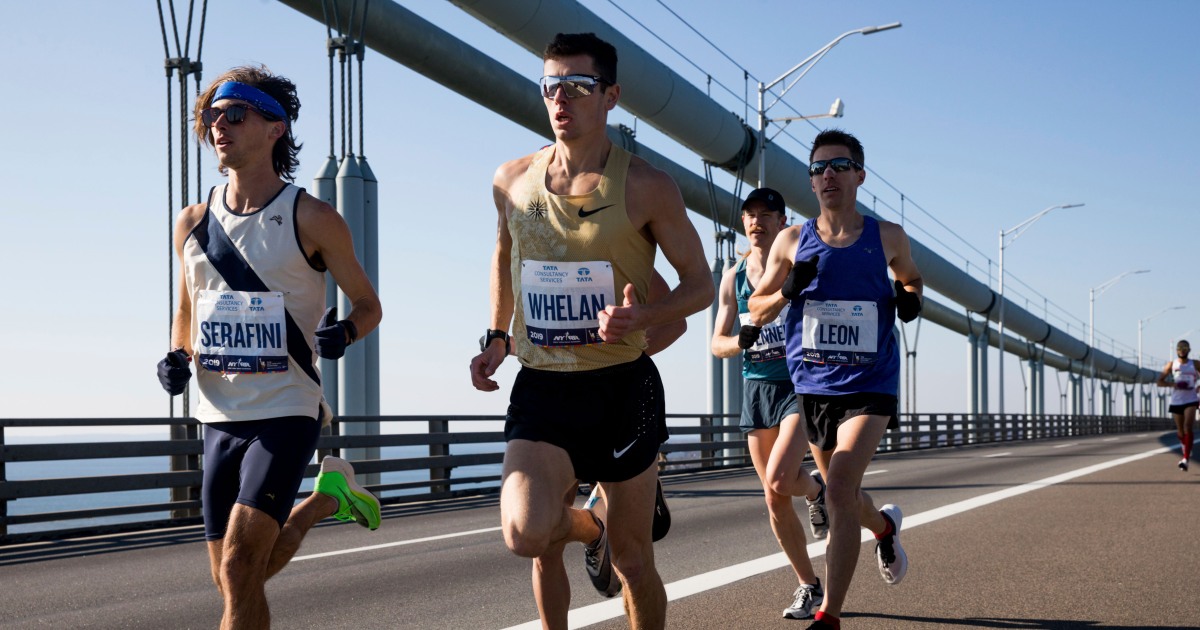By Caroline Hopkins -
NBC News
Runners often hear the warning: "Keep pounding the asphalt and you'll wreck your knees."
A new study has found that runners are no more likely to develop hip or knee osteoarthritis the longer, faster and more often they run.
Osteoarthritis, a disease characterized by the deterioration of the cartilage where the bones meet, affects more than 32.5 million adults in the United States, according to the Centers for Disease Control and Prevention (CDC, for its acronym in English).
As the cartilage that cushions your bones wears away, osteoarthritis can cause pain, stiffness, and even disability.
It is the most common form of arthritis, especially among older people, and there is no known cure.
[The opioid crisis is not just a white problem: deaths among Hispanics have skyrocketed]
"Once it's there, there it is," says Dr. Matthew Hartwell, an orthopedic surgeon at the University of California, San Francisco, Calif., and lead author of the new study, which is scheduled to be presented Thursday at the annual meeting of the American Academy of Orthopedic Surgeons.
"You can't rebuild cartilage."
The new research surveyed 3,804 recreational runners who participated in the Chicago Marathon in 2019 or 2021 with questions ranging from how many years they had been running and their average race paces to whether they had a family history of arthritis.
Experts warn about the risks of insomnia for heart health
March 6, 202302:04
There is a widespread belief, even among doctors, that using the joints more often, through repetitive activity like running, causes the cartilage in the knee and hip to break down more quickly, increasing the risk of osteoarthritis.
The Northwestern University researchers -- including Hartwell, who was at Northwestern for the duration of the study, and a co-author, Dr. Vehniah Tjong, a sports orthopedic surgeon -- found that this was not the case.
[She paid $8,000 for butt lift surgery in Florida and says she lives in constant pain]
On average, the runners who responded to the survey were just under 44 years old and ran 27.9 miles (45 kilometers) a week at 8 minutes, 52 seconds per mile.
Typically, they had been running for about 15 years, though that number ranged from 1 to 67 years.
Many of those surveyed were running their first marathon, while a few had run dozens.
Most fell somewhere in between.
Because of the breadth of the survey group—a departure from historical research focused on elite Olympic athletes—Northwestern researchers were able to analyze how runners' arthritis risk changed based on their running pace, intensity, and track record. .
Surprisingly, they found no relationship between increased risk of knee or hip arthritis and the number of years a person had been running, the number of marathons completed, their weekly mileage, or their running pace.
[Do you have a migraine? These are the foods they recommend avoiding and the ones you can eat]
Given the wide range of cumulative weekly miles, paces, ages and years the respondents had been running, the results might apply to average runners who never approach the distance of a marathon, the researchers said.
“Our results should encourage runners,” says Tjong.
“They refute the current dogma that long-distance running predisposes to hip and knee arthritis,” he added.
The joint is really an active and living part of the body, almost like an organ."
MATTHEW HARTWELL, ORTHOPEDIC SURGEON
Overall, 7.3% of the marathon runners who responded to the survey said they had ever been diagnosed with osteoarthritis of the hip or knee.
Hartwell cautioned against comparing this rate to that of the general population, given the significant differences in age and general health.
Even so, he said, "most doctors would agree that, on average, the incidence of arthritis is greater than 7% in a 44-year-old person."
Most tellingly, nearly 1 in 4 runners surveyed at all levels said their doctors had suggested they cut back on mileage or stop running altogether.
Get away from the “wear and tear” mentality
Many doctors view osteoarthritis as a "wear and tear" disease.
“We are often compared to a car,” says Hartwell.
“If we compare people to cars, it intuitively makes sense that the more we use our joints, the more we wear them out.
But the joint is really an active, living part of the body, almost like an organ."
According to Jeffrey Driban, an osteoarthritis researcher at Tufts University who was not involved in the Chicago Marathon study, the notion of "wear and tear" fails to take into account the benefits of running for joint health and the possibility of counteracting its deterioration.
Activity can improve muscle function around joints and encourage the body to produce more synovial fluid, a viscous fluid that lubricates joints.
[COVID-19 increases the chances of suffering cardiovascular problems by up to 55%]
“The number of runners who are advised by their doctors to reduce or eliminate running is worrying,” says Driban.
“The evidence we have so far suggests that running, for most people, is a safe activity.
We have to get away from this philosophy of attrition.”
Running won't prevent the inevitable risk factors for osteoarthritis, such as age and family history, but it can prevent diseases such as heart disease and obesity, according to Driban.
Both conditions are closely related to an increased risk of osteoarthritis.
Runners in the elite men's division make their way across the Verrazzano-Narrows Bridge during the New York City Marathon, Sunday, Nov. 3, 2019, in New York. Julius Constantine Motal / AP
“The population of people with osteoarthritis tends to have other comorbidities, and it is precisely this population that we want to practice physical activity,” he said.
"We don't want to discourage them from running, especially if they enjoy doing it."
The Chicago Marathon survey only captures runners' current and past joint health, not their risk of developing hip and knee osteoarthritis in the coming years.
[Exercise More Effective Than Medication For Depression, Study Finds]
“We don't have a complete picture of long-term joint health,” says Driban.
“It would be valuable to follow these runners over time, or even contact former marathoners who stopped running and see how they are doing now.”
How to avoid running injuries
In addition to arthritis, the survey asked runners if they had ever suffered a hip or knee injury that temporarily prevented them from running.
Almost half answered in the affirmative.
Experts agree that running-related injuries, as opposed to running in general, increase the risk of developing arthritis, underscoring the importance of injury prevention.
To reduce the risk of running-related injuries, Hartwell suggested simple measures like:
Dynamic warm-up, such as jumping jacks, high knees, or lunges.
Stretches.
Choose the right footwear.
“Take it easy and make sure you have the right gear when you go for a run.
And listen to the signals your body is giving you,” Hartwell advised.












